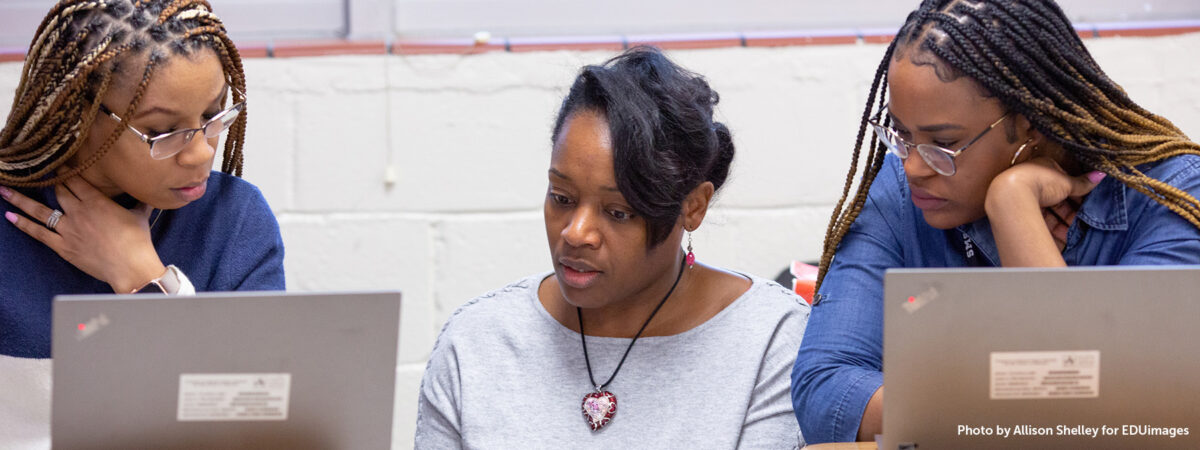
The International Society for Technology in Education (ISTE) has created a course, Artificial Intelligence Explorations and Their Practical Use in Schools, to support educators in developing AI literacies, such as: identifying different forms of AI, learning about upcoming AI, and developing tools that can help make the technology more accessible to them and their students. Through this coursework, Lisa Coburn, a technology coordinator from Westville School District in Illinois, was able to support her students in writing a chatbot script for a natural language recognition application that could be used in her classroom.
Massachusetts Institute of Technology’s (MIT) Media Lab has also made strides in promoting AI literacy in K-12 for both educators and students. In collaboration with the MIT Schwarzman College of Computing and MIT Open Learning, the Media Lab has developed a new initiative, RAISE (Responsible AI for Social Empowerment and Education). Through this collaboration, they are developing professional development resources for educators and project-based learning curricula that enable students to collaboratively engage with their AI-products in computational action that helps others.
Further, foundational AI knowledge will be integral as these technologies will increasingly become ingrained in the workforce ecosystem. Educators will need to be equipped with tools and resources to integrate AI into their instruction and prepare their students for the future of the work. The University of Florida and Orange County Public Schools have developed a statewide career technical education (CTE) curriculum framework for four AI courses for high school students. The courses build upon each other, instructing students on how AI exists in the real world, how it can be leveraged to solve problems, and how to create AI systems that can solve problems they are passionate about. Anaheim Union High School District has also created an AI career pathway program with courses that help students actively discuss the possibilities and limitations of technology. The district has developed a career preparedness systems framework which includes but is not limited to, learning experiences and internships in AI careers.
While there are many potential benefits and opportunities in education from the advancement of AI, there are also a copious number of instances where AI has harmed and disempowered historically and systematically excluded communities. Students will need to understand the social and ethical implications of AI as they leverage AI to solve both complex challenges and daily tasks. Researchers in AI and education at Carnegie Mellon University and the University of Florida, in collaboration with the Georgia State Department of Education, have been leading a three-year project to address these concerns. They are developing a nine-week elective course, Living and Working with Artificial Intelligence, and will pilot with Georgia middle school students and an online teacher professional development course. Both courses will be developed in collaboration with teachers in Georgia from three ethnically and geographically diverse populations that have large populations of white, Latinx, or Black students. Before developing the curriculum, teachers will receive training on culturally responsive teaching and the foundations of AI. Similarly, New York City Public Schools is training a cohort of computer science teachers to help their students identify potential risks and biases with AI. Through this curriculum, educators are able to discuss biased facial recognition algorithms, such as more accuracy in recognizing lighter-skinned faces over darker-skinned faces.
The presence of AI in education and the workforce will continue to grow. Fostering awareness and comprehension of these technologies will be essential to prepare students for a life integrated with AI.
To learn more about how AI can support and center educators and learners in education, check out the Office of Educational Technology’s latest report, developed in collaboration with Digital Promise: “Artificial Intelligence and the Future of Teaching and Learning.”

We want to hear from you!
Please take this 5-minute survey and help us serve you better.
